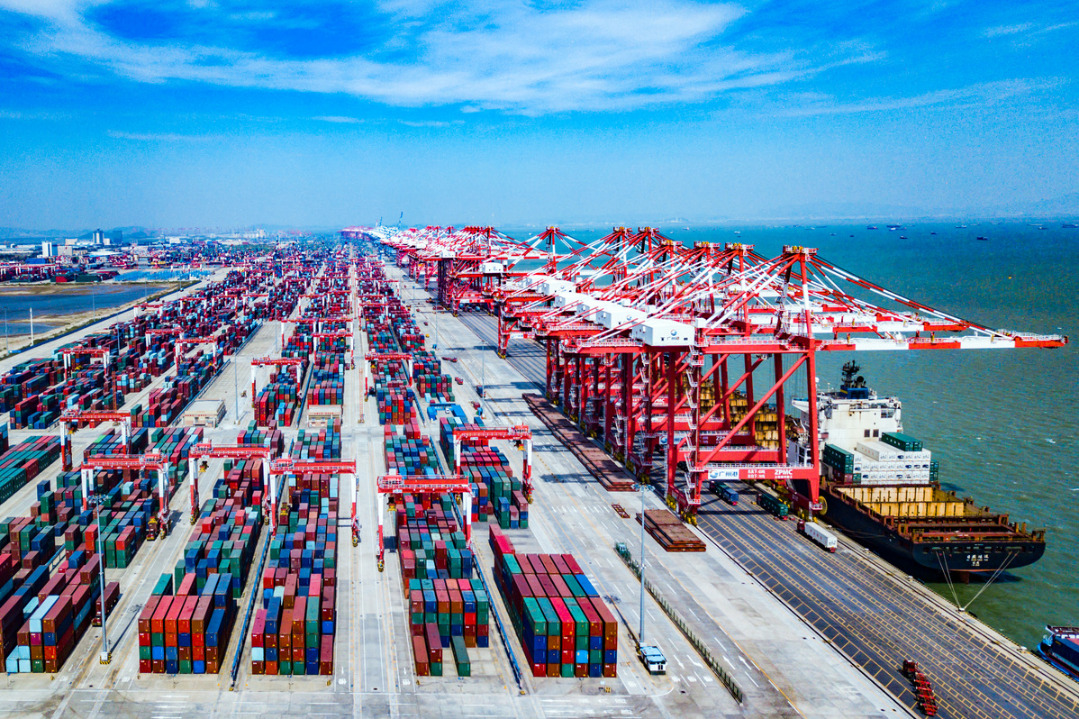Party still committed to ending graft


Editor's note: The 19th Central Commission for Discipline Inspection of the Communist Party of China, the Party's top anti-corruption watchdog, will hold its second plenary session in Beijing from Thursday to Saturday. Three experts share their views on the fight against corruption in 2018 with China Daily's Zhang Zhouxiang and Yang Yi. Excerpts follow:
Two main anti-graft jobs in 2018
Ji Naili, a professor of anti-graft studies at Zhou Enlai School of Governance, Nankai University
There are two main jobs for the anti-corruption campaign this year. The first is to extend the supervisory commissions, piloted in Beijing municipality, and Shanxi and Zhejiang provinces, across the country, and take measures to ensure the new supervisory commissions work with Party disciplinary commissions at the corresponding level.
The two commissions work according to different principles: The new supervisory commissions will get their power from national laws, while the Party discipline commissions have to work according to the Party discipline. So the coordination of the two commissions' tasks will play a key role in fighting corruption this year.
The second job is to better mobilize the general public to supervise officials. Various levels of Party discipline commissions have already devised a good way to supervise Party officials, but at the grassroots level, the ordinary people's supervision over officials has not been so effective. In order to solve this problem, different levels of Party discipline commissions and the to-be-established supervisory commissions need to more timely respond to people's complaints, so that the latter can more confidently supervise officials.
Putting commissions' power in cage of law
Zhuang Deshui, deputy director of the Clean Government Research Center, and an associate professor at Peking University
A major development in the fight against corruption this year will be the extension of supervisory commissions, piloted in Beijing, and Shanxi and Zhejiang provinces, nationwide. While the majority of scholars have applauded the move, some are wondering who will supervise the supervisory commissions. Will their power be unlimited?
Actually, the supervisory commissions to be established will be supervised from multiple aspects. First, the head and deputy head of a supervisory commission will be appointed by the people's congress at the corresponding level and must report to the latter. That is a kind of authorization supervision.
Second, supervisory commissions can investigate corruption cases, but they do not have the power to prosecute a suspect in a court of law. If a local procuratorate differs with the result of a supervisory commission, it can ask the procuratorate officials to re-investigate, or even drop, the case. Which is procedural supervision.
Third, according to the draft regulation on establishing the supervisory commissions, their inner supervision is of vital importance.
And fourth, supervisory commissions, too, have to be transparent, and the public and media can supervise them.
The four supervision mechanisms for supervisory commissions are important, but whether or not supervisory commissions are under effective supervision will determine people's trust in it, and that's why the worries have emerged.
In order to win public trust for the supervisory commissions, it is necessary to put their power in the cage of law, so as to establish a good supervision mechanism nationwide.
Officials must always serve the people
Du Zhizhou, deputy director of the Clean Governance Research Center at Beihang University
Two senior officials-Feng Xinzhu, vice-governor of Shaanxi province, and Ji Xiangqi, vice-governor of Shandong province-h(huán)ave been investigated for suspected corruption and violation of discipline in the first few days of 2018.
That shows there are still some corrupt officials who hold quite high positions in the Party and/or government. The mission to combat corruption is far from over, and one should always attach great importance to it.
The investigation of the two high-ranking officials on two succeeding days shows China is determined to root out corruption, and the move marks a good beginning for the anti-graft campaign this year. As a result of China's long-term anti-corruption work, 51 of the country's 100 most wanted corrupt officials who had fled overseas were brought back to the country by Dec 6, 2017, to face the judiciary. In total, 1,021 fugitive corrupt officials were nabbed last year.
Some people have long doubted whether China is determined enough to root out corruption, implying officials might soon revert to their old habits. The cases against the two vice-governors should clear their doubts over China's determination to end corruption and, more importantly, remind all officials to stay true to their commitment to serve the people.


































